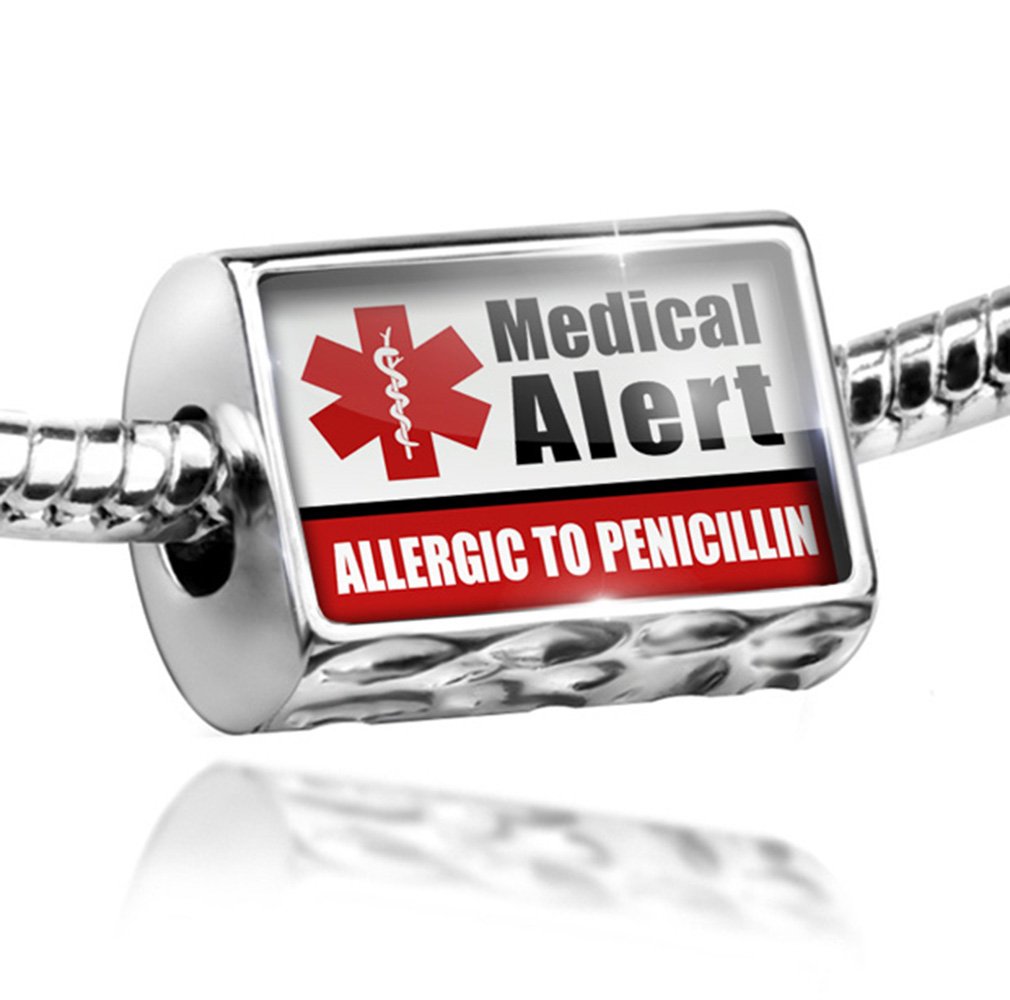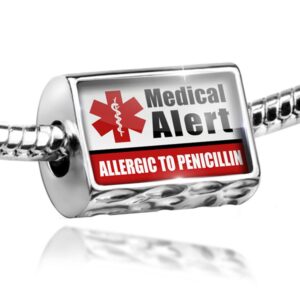
Are you allergic to penicillin? Did your parents tell you that you had a reaction as a child?
Penicillin allergy is the most commonly reported medication allergy. Up to 10% of all people and 15% of hospitalized patients report an allergy to penicillin. Around 90% of these people, when evaluated are found not to be allergic, and are able to safely receive penicillin antibiotics.
How does this happen?
Drug allergies are typically diagnosed based on signs and symptoms rather than a definitive test. Furthermore, drug allergies present with a variety of symptoms, including rashes, which can also occur due to the underlying infection being treated. Viruses, especially, are known to cause non-specific rashes as well as classic hives which are often mistaken as drug allergies. Therefore, the onset of symptoms while taking a medication is often attributed to the medication, and results in the diagnosis of drug allergy to err on the side of caution, as true drug allergies pose the risk of more severe, life-threatening reactions. These symptoms, however, may have been due to something entirely unrelated to the medication (i.e. the infection) and therefore warrants evaluation by an allergist.
Why is it important to know if you are truly allergic to penicillin?
Having an allergy to penicillin means you must avoid all medications in this class of antibiotics including medications like Amoxicillin, Augmentin, and Ampicillin. Some physicians may also avoid the closely related class of antibiotics called cephalosporins (examples including Cephalexin and Cefdinir) out of fear of possible cross-reaction. This poses a serious health risk not only for those labeled as penicillin allergic but also for society as a whole. Penicillin antibiotics are often the best (or first-line) treatment option for a variety of common and frequently encountered infections including ear infections, strep throat, and sinus infections. When we can’t use penicillins, we are left with alternative antibiotic options which are less effective, associated with more side effects, and stronger than needed (more broad-spectrum). Using broad-spectrum antibiotics can unnecessarily result in the development of antibiotic-resistant organisms which may be harder to treat in the future.
Do you avoid penicillins because one or both of your parents have a history of penicillin allergy?
Research shows that children are not at increased risk of an allergy to a specific medication because of parental history of reaction. If you test negative on penicillin allergy testing, the chances are very high that you can tolerate the medication and prevent unnecessary avoidance in the future.
Did you have a reaction as a child? Were you told you were allergic but don’t recall the reaction yourself?
If you were diagnosed with a penicillin allergy in infancy or childhood and don’t know more details about your reaction, the chances are still high that you can tolerate penicillin antibiotics. Studies show that of the 10% of those with reported allergy that do test positive, about 50% of people lose their allergy after 5 years and more than 80% lose their allergy after 10 years. Therefore, all people with a history of penicillin allergy should get evaluated by an allergist to determine if they are still allergic.
Is penicillin allergy an issue in pregnancy?
Did you know that all pregnant women are screened for a common bacteria called Group B Strep (or GBS) around 36 weeks of pregnancy? If positive, your OB/Gyn doctor will recommend you receive an antibiotic during delivery to help prevent this bacteria from causing serious infection in your baby soon after birth. The best antibiotic for preventing this is penicillin. Since the risks associated with any type of allergy testing are increased during pregnancy, we highly recommend you consider allergy testing to penicillin prior to getting pregnant.
What should you do?
If you think you have a penicillin allergy you should not ignore this and start taking penicillins as true drug allergies do pose a serious risk of a severe life-threatening allergic reaction if taken. You should, however, see an allergist for penicillin skin testing as this is a well-studied, safe, and easy way to determine if you are truly allergic.
Do you have questions about managing your allergies? Don’t hesitate to reach out to us. We are here to help! Feel free to give us a call at 212-729-1283 or email us at info@hudsonallergy.com.
 Meet the author of this blog Dr. Rushita Mehta, an allergist and immunologist that specializes in environmental allergies, asthma, chronic sinusitis, food allergies, insect venom allergies, anaphylaxis, eczema, hives, angioedema, and immunodeficiency. She is board certified with the American Board of Pediatrics and the American Board of Allergy and Immunology. You may schedule an appointment with Dr. Mehta online or by calling 212-729-1283.
Meet the author of this blog Dr. Rushita Mehta, an allergist and immunologist that specializes in environmental allergies, asthma, chronic sinusitis, food allergies, insect venom allergies, anaphylaxis, eczema, hives, angioedema, and immunodeficiency. She is board certified with the American Board of Pediatrics and the American Board of Allergy and Immunology. You may schedule an appointment with Dr. Mehta online or by calling 212-729-1283.


